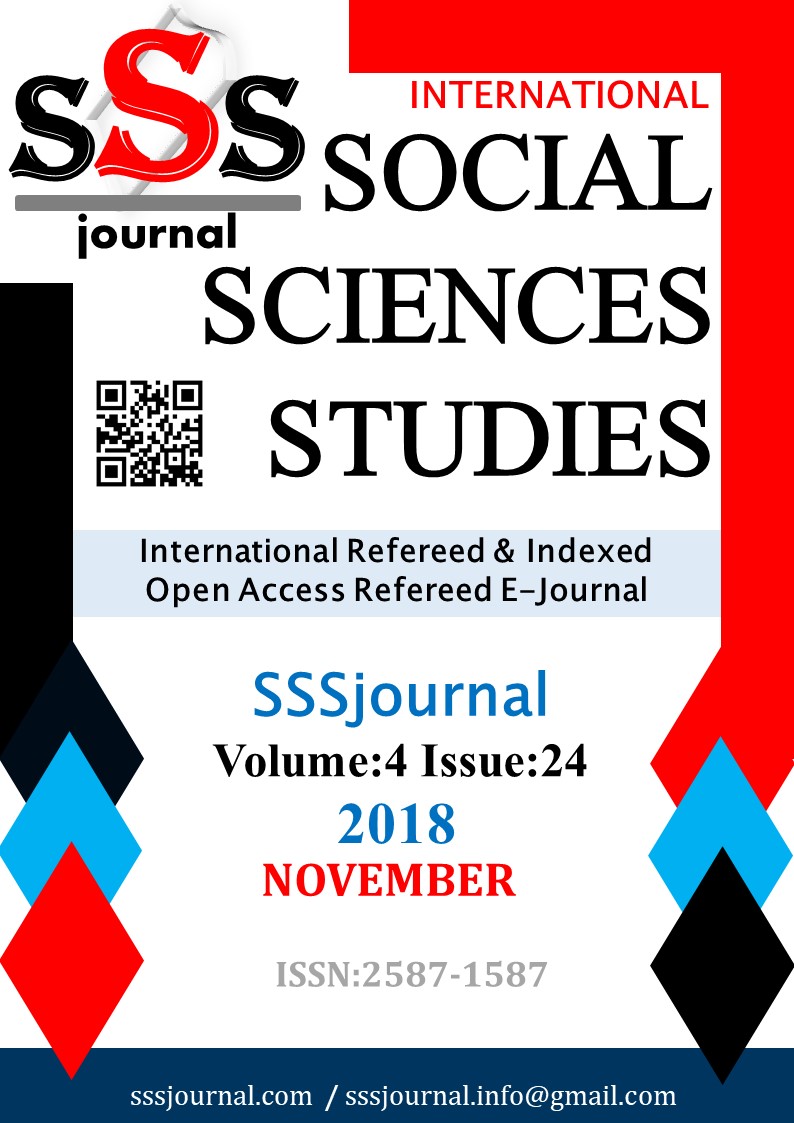Author :
Abstract
Political stability, like all other stability indices, has important effects on any economy. In the context of new political economy, the importance of political stability/instability on the economic indicators of the countries has recently been discussed. This study aims to reveal the linkage between political stability and GDP growth rate of the Middle East and North Africa and Turkey (MENAT countries) using annual dataset from the period 1984 to 2014. The results of the panel non-causality test introduced by Dumitrescu and Hurlin showed that GDP growth seemed to generate political stability, but not vice versa. We also calculated the elasticity of political stability to GDP growth. Every 1% increase in GDP growth would result in a 0,02% increase in political stability index in the selected country group. Therefore, this result supports the reality that a country’s GDP growth in selected countries is capable of stimulate having a more stable political environment.
Keywords
Abstract
Political stability, like all other stability indices, has important effects on any economy. In the context of new political economy, the importance of political stability/instability on the economic indicators of the countries has recently been discussed. This study aims to reveal the linkage between political stability and GDP growth rate of the Middle East and North Africa and Turkey (MENAT countries) using annual dataset from the period 1984 to 2014. The results of the panel non-causality test introduced by Dumitrescu and Hurlin showed that GDP growth seemed to generate political stability, but not vice versa. We also calculated the elasticity of political stability to GDP growth. Every 1% increase in GDP growth would result in a 0,02% increase in political stability index in the selected country group. Therefore, this result supports the reality that a country’s GDP growth in selected countries is capable of stimulate having a more stable political environment.
Keywords
- Aisen, A. and José Veiga, F., (2013). How does political instability affect economic growth?, European
- Aisen, A. and José Veiga, F., (2013). How does political instability affect economic growth?, European Journal of Political Economy, 29(1), pp. 151-167.
- Alesina, A., and R. Perotti. (1996). Income distribution, political instability, and investment. European Economic Review, 40 (6), pp. 1203-1228.
- Alesina, A., S. Özler, N. Roubini, and P. Swagel. (1996). Political Instability and Economic Growth. Journal of Economic Growth 1 (June): 189-211.
- .Breusch, T., Pagan, A. (1980). The LM test and its applications to model specification in econometrics. Review of Economic Studies. 47. 239-254.
- Campos, N.F. and Nugent, J.B., (2000). Who is Afraid of Political Instability. Journal of Development Economics, 67, pp. 157-172.
- Chen, B., Feng, Y., (1996). Some political determinants of economic growth: Theory and empirical implications. European Journal of Political Economy. 12. pp. 609-627.
- Devereux, M. and Wen, J.F., (1998). Political instability, capital taxation, and growth. European Economic Review. 42. pp. 1635-1651.
- Dimitraki, O., (2010). Political Instability and Economıc Growth in Western Europe: A Causality Analysis for 55 Years. 3rd PhD Conference in Economics 2010 Brunel University, West London UK.
- Dumitrescu, Elena-Ivona and Hurlin, Christophe. (2012). Testing for Granger non-causality in heterogeneous panels. Economic Modelling, 29(4), 1450-1460.
- Hadri, K., and Kurozumi, E., (2012). A Simple Panel Stationarity Test in the Presence of Serial Correlation and a Common Factor, Economics Letters, 115, 31–34
- Jong-A-Pin, R.,(2009). On the Measurement of Political Instability and Its Impact on Economic Growth. European Journal of Political Economy.25 (1). pp. 15-29.
- Kılıç, Cüneyt; Feyza Balan, Ünzüle Kurt. (2015). Testing the Validity of Political Business Cycle for theFragile Five Countries. Theoretical and Applied Economics Volume XXII (2015), No. 4(605), Winter, pp.PRS Group, ICRG Methodology, The Political Risk Rating, Retrieved May 21, 2015 from
- Word Development Indicators (2015). http://data.worldbank.org/data-catalog/world-development-indicators, [10.08.2017].
